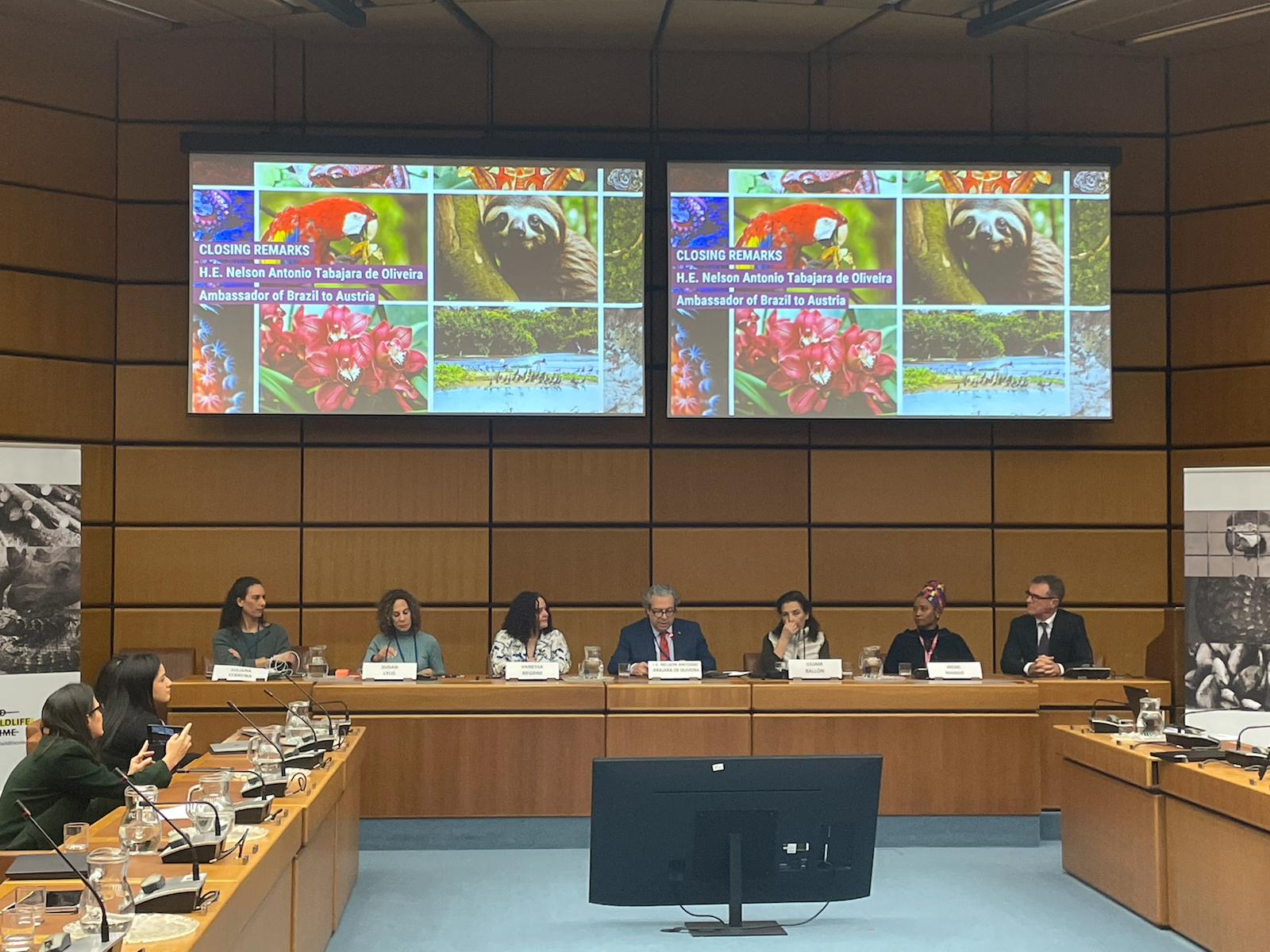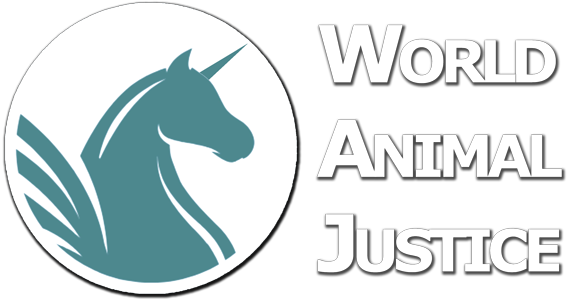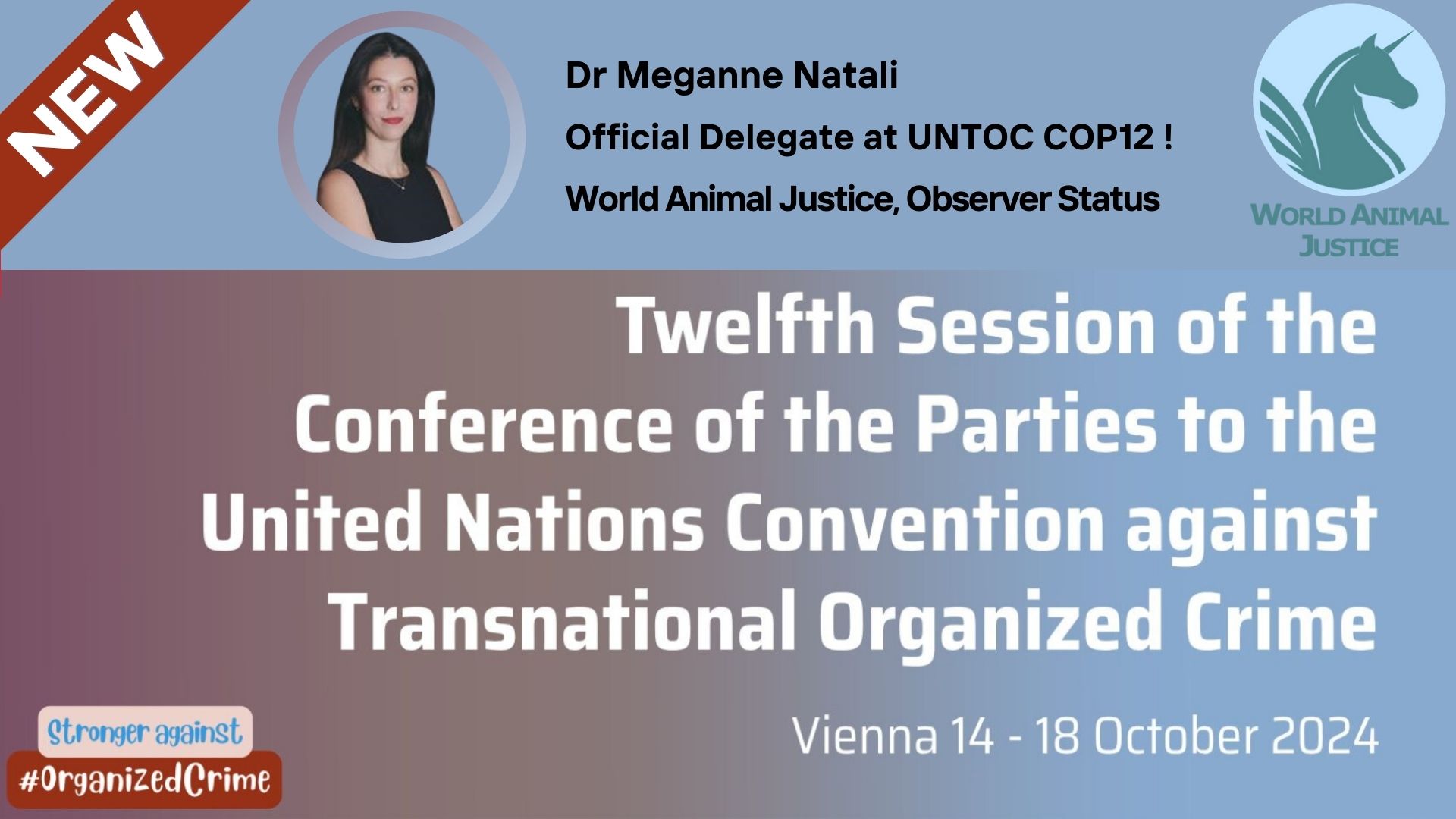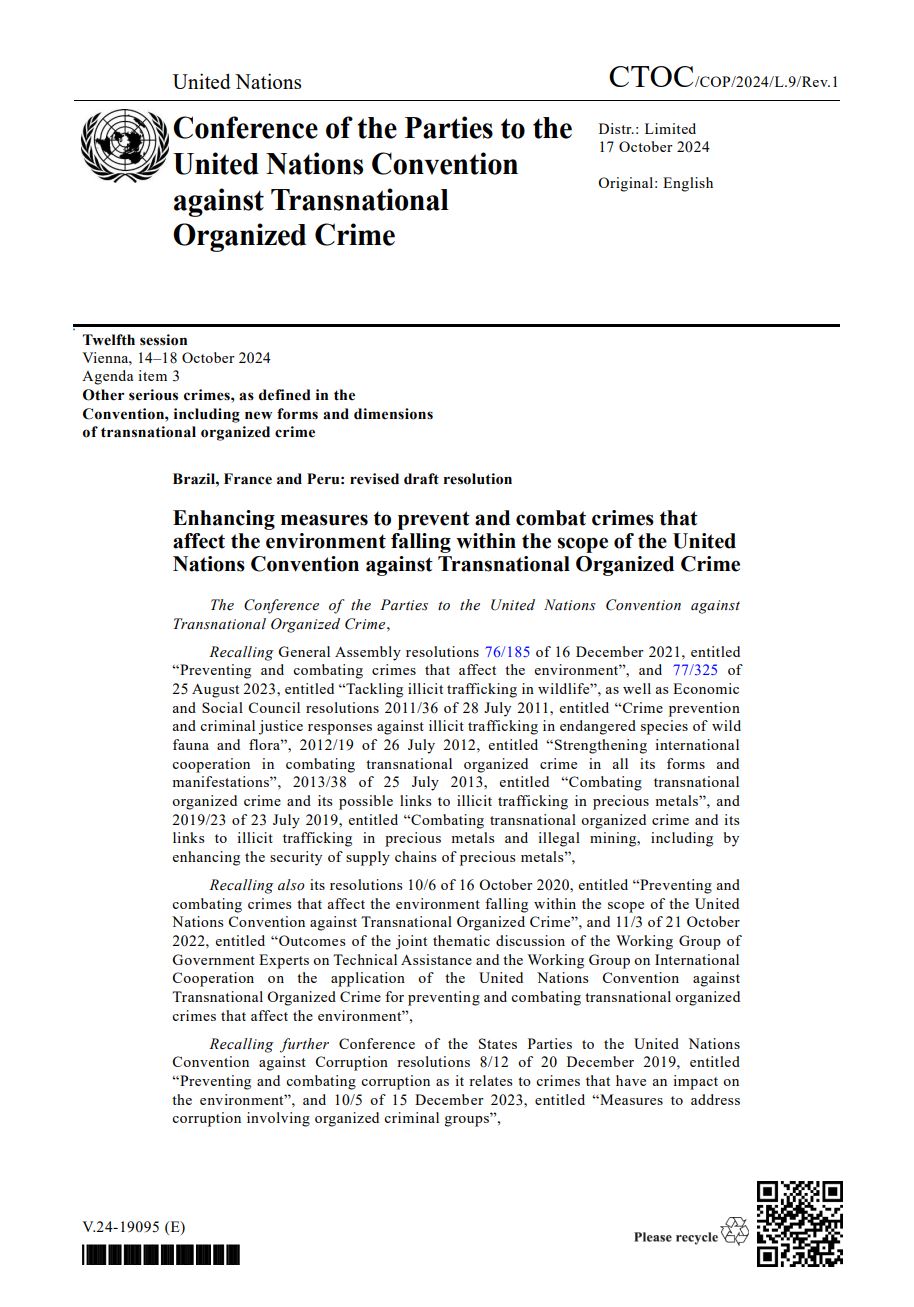World Animal Justice has successfully secured observer status at the United Nations Convention against Transnational Organized Crime (UNTOC), marking a significant milestone in its advocacy for animal protection. WAJ official delegate, Dr Meganne Natali, attended the 12th UNTOC Conference, where the focus was on addressing transnational environmental crimes such as wildlife trafficking. Key discussions emphasized the importance of partnerships, international cooperation, and empowering local communities. A major outcome was the adoption of a resolution calling for stronger legal frameworks and collaboration to combat environmental crimes, potentially leading to a new international protocol specifically addressing these challenges.

Insights from first WAJ Delegate at UNTOC COP12
Attending the 12th Conference of the Parties (CoP12) to the United Nations Convention against Transnational Organized Crime (UNTOC) was a deeply enriching experience. As a delegate for the World Animal Justice organization, I had the privilege of standing alongside representatives from governments, NGOs, and various stakeholders dedicated to addressing the urgent challenge of environmental crimes, with discussions marked by a strong commitment to finding solutions to transnational crimes that threaten biodiversity, ecosystems, and sustainable development. Engaging in these dialogues provided valuable insights into the evolving dynamics of international cooperation, the importance of community engagement, and the role of legal frameworks in tackling these multifaceted issues.
Key Insights from Plenary Sessions and Side Events
- Reaffirming Collaboration: Building Effective Partnerships for Environmental Protection
The importance of forging partnerships for effective action against environmental crimes was powerfully re-emphasized during CoP12. Addressing challenges like illegal wildlife trafficking and hazardous waste disposal requires a coordinated, multi-stakeholder approach that brings together governments, NGOs, and the private sector. Throughout plenary sessions and side events, the discussions underscored how collaboration can greatly enhance strategies to combat these illegal activities. These partnerships extend beyond merely pooling resources; they involve aligning priorities, sharing specialized expertise, and ensuring that efforts are seamlessly coordinated across all levels of governance. A pivotal element of this collaborative effort lies in integrating local and Indigenous knowledge into enforcement initiatives. Communities directly impacted by environmental crimes possess valuable insights into their ecosystems, and their engagement ensures that actions are not imposed from the top down, but are shaped by those most affected. This approach helps bridge the divide between global policy frameworks and local realities, fostering more sustainable and culturally sensitive enforcement strategies.
- International Cooperation: A Pillar for Tackling Transnational Wildlife Crime
Throughout CoP12, the need for enhanced international cooperation stood out as a recurring theme – especially in relation to wildlife crime, which frequently transcends national borders. The discussions underscored the potential of leveraging existing frameworks like the UNTOC to better align national strategies, facilitate intelligence sharing, and pool resources for navigating the complexities of wildlife trafficking. This collective approach is not just about responding to immediate threats but also about creating a standardized baseline for legal definitions and enforcement practices across countries.
This commitment to cooperation was solidified with the adoption of the resolution, “Enhancing measures to prevent and combat crimes that affect the environment falling within the scope of the United Nations Convention against Transnational Organized Crime”, submitted by Brazil, France, and Peru, which emphasizes the urgent need for stronger international collaboration in tackling environmental crimes and highlights the importance of a unified response that integrates multidisciplinary approaches, tailored to the unique contexts of each country, thereby fostering a more resilient and effective global framework against environmental crimes.
- The Resolution’s Impact: A Path Forward for Global Efforts
The resolution underwent several amendments before being adopted by consensus on Friday 18th of October. It calls for concrete measures to strengthen legislation, law enforcement, and judicial responses, with a focus on promoting capacity-building and utilizing international legal instruments like the UNTOC and the United Nations Convention against Corruption (UNCAC). One of the most promising aspects of the resolution is its call for the United Nations Office on Drugs and Crime (UNODC) to convene an open-ended intergovernmental expert group on crimes that affect the environment. This group is tasked with considering the feasibility and merits of any additional protocol to the UNTOC specifically addressing environmental crimes. This initiative marks a critical first for the UNTOC and could pave the way for the development of more targeted international legal instruments. Such a protocol would not only solidify the international community’s commitment to combating environmental crimes but also provide a framework for more coordinated and consistent responses across borders.
The resolution also highlights the importance of addressing the financial dimensions of environmental crimes. It emphasizes the recovery of proceeds from such crimes and the dismantling of the criminal networks that profit from environmental degradation. This focus is crucial, as it acknowledges that merely targeting lower-level offenders is not enough; the financial structures that enable these activities must be dismantled to ensure long-term progress.
Building on Momentum: Steps Toward Stronger Action Against Wildlife Crime
Reflecting on the outcomes of CoP12, there are several steps that the international community can take to build on the progress made and further advance efforts to combat wildlife crime:
– Strengthening Regional Cooperation: While international frameworks like the UNTOC provide a solid foundation, regional cooperation can enhance the effectiveness of these efforts. Countries with shared ecological landscapes can develop joint strategies for monitoring and enforcement, ensuring that actions are well-coordinated across borders. By leveraging regional agreements alongside global ones, countries can adapt their responses to the specific challenges they face.
– Empowering Local Communities: The importance of integrating local and Indigenous knowledge into enforcement strategies cannot be overstated. Going forward, there should be greater efforts to create platforms that amplify the voices of these communities in international forums. This will not only strengthen enforcement on the ground but also ensure that global policies reflect local realities, fostering a sense of ownership and commitment among those most affected.
– Expanding Capacity-Building Initiatives: Many countries face challenges in implementing robust legal frameworks and enforcement mechanisms due to limited resources. Expanding capacity-building programs, including training for law enforcement and judiciary members, can empower nations to take stronger action against environmental crimes. These programs should be designed with an understanding of local contexts, ensuring that they address the unique challenges faced by each country.
Conclusion: A Shared Responsibility for a Sustainable Future
My experience at CoP12 was a powerful reminder of the collective commitment required to combat transnational environmental crimes. As the world grapples with the dual challenges of biodiversity loss and climate change, it is clear that no single entity can tackle these issues alone. The resolution adopted at CoP12 sets a promising foundation, but translating these commitments into action requires sustained collaboration and an unwavering focus on capacity-building and community engagement. By building on the progress made and embracing a truly global and inclusive approach, we can ensure a safer and more sustainable future for both people, animals and the planet.




Pingback:Crime Convergence: Integrating Animal Crimes into Global Crime Prevention - World Animal Justice